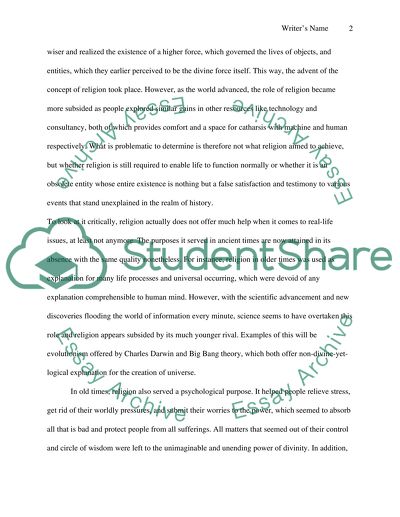Cite this document
(“The purpose of religion Essay Example | Topics and Well Written Essays - 1000 words”, n.d.)
Retrieved from https://studentshare.org/religion-and-theology/1417182-the-purpose-of-religion
Retrieved from https://studentshare.org/religion-and-theology/1417182-the-purpose-of-religion
(The Purpose of Religion Essay Example | Topics and Well Written Essays - 1000 Words)
https://studentshare.org/religion-and-theology/1417182-the-purpose-of-religion.
https://studentshare.org/religion-and-theology/1417182-the-purpose-of-religion.
“The Purpose of Religion Essay Example | Topics and Well Written Essays - 1000 Words”, n.d. https://studentshare.org/religion-and-theology/1417182-the-purpose-of-religion.


